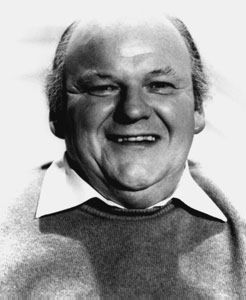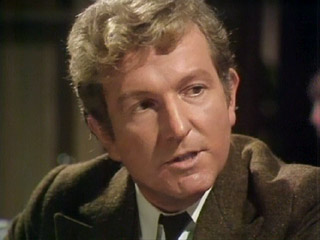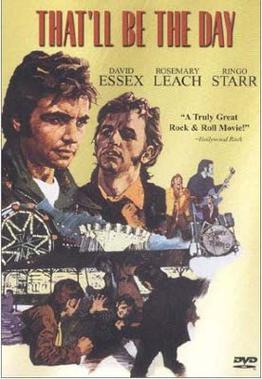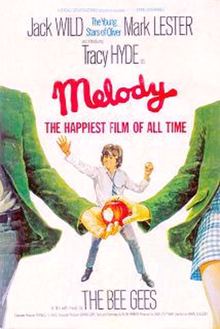
Spencer Bonaventure Tracy was an American actor. He was known for his natural performing style and versatility. One of the major stars of Hollywood's Golden Age, Tracy was the first actor to win two consecutive Academy Awards for Best Actor, from nine nominations. During his career, he appeared in 75 films and developed a reputation among his peers as one of the screen's greatest actors. In 1999, the American Film Institute ranked Tracy as the 9th greatest male star of Classic Hollywood Cinema.

Henry Warren Beatty is an American actor and filmmaker. His career has spanned over six decades, and he has received numerous accolades, including an Academy Award and three Golden Globe Awards. He also received the Irving G. Thalberg Award in 1999, the BAFTA Fellowship in 2002, the Kennedy Center Honors in 2004, the Cecil B. DeMille Award in 2007, and the AFI Life Achievement Award in 2008.

Sir Alan William Parker was an English film director, screenwriter and producer. His early career, beginning in his late teens, was spent as a copywriter and director of television advertisements. After about ten years of filming adverts, many of which won awards for creativity, he began screenwriting and directing films.

David Terence Puttnam, Baron Puttnam, CBE, HonFRSA, HonFRPS, MRIA is a British-Irish film producer, educator, environmentalist and former member of the House of Lords. His productions include Chariots of Fire, which won the Academy Award for Best Picture, The Mission, The Killing Fields, Local Hero, Midnight Express and Memphis Belle. In 1982, he received the BAFTA for Outstanding British Contribution to Cinema, and in 2006 he was awarded the BAFTA Fellowship for lifetime achievement from the British Academy of Film and Television Arts.

Roy Mitchell Kinnear was an English character actor and comedian. He was known for his acting roles in movies such as Henry Salt in the 1971 film Willy Wonka & the Chocolate Factory, Algernon in The Beatles' Help! (1965), Clapper in How I Won the War (1967), and Planchet in The Three Musketeers (1973). He reprised the role of Planchet in the 1974 and 1989 sequels, and died following an accident during filming of the latter.

Hullabaloo is a 1940 American musical comedy film directed by Edwin L. Marin and written by Nat Perrin. It stars Frank Morgan, Virginia Grey, Dan Dailey, Billie Burke, Donald Meek, Reginald Owen, and Connie Gilchrist. Jack Albertson, Leo Gorcey, and Arthur O'Connell appear in bit roles.

Mark Lester is an English former child actor who starred in a number of British and European films in the 1960s and 1970s. In 1968 he played the title role in the film Oliver!, a musical version of the stage production by Lionel Bart based Charles Dickens' novel Oliver Twist He is one of three last surviving actors of Said film along with Shani Wallis and Kenneth Crannham. Lester also made several appearances in a number of British television series. In 1977, after appearing in the all-star international action adventure film The Prince and the Pauper, he retired from acting. In the 1980s, he trained as an osteopath specialising in sport injuries.

Waris Hussein is a British-Indian television and film director. At the beginning of his career he was employed by the BBC as its youngest drama director. He directed early episodes of Doctor Who, including the first serial, An Unearthly Child (1963), and later directed the multiple-award-winning Thames Television serial Edward & Mrs. Simpson (1978).

Keith Barron was an English actor and television presenter who appeared in films and on television from 1961 until 2017. His television roles included the police drama The Odd Man, the sitcom Duty Free, and Gregory Wilmot in Upstairs, Downstairs.

Lisztomania is a 1975 British surreal biographical musical comedy film written and directed by Ken Russell about the 19th-century composer Franz Liszt. The screenplay is derived, in part, from the book Nélida by Marie d'Agoult (1848), about her affair with Liszt.

That'll Be the Day is a 1973 British coming of age drama film directed by Claude Whatham, written by Ray Connolly, and starring David Essex, Rosemary Leach and Ringo Starr. Set primarily in the late 1950s and early 1960s, it tells the story of Jim MacLaine (Essex), a British teenager raised by his single mother (Leach). Jim rejects society's conventions and pursues a hedonistic and sexually loose lifestyle, harming others and damaging his close relationships. The cast also featured several prominent musicians who lived through the era portrayed, including Starr, Billy Fury, Keith Moon and John Hawken. The film's success led to a sequel, Stardust, that followed the life of Jim MacLaine through the 1960s and 1970s.

Stardust is a 1974 British musical drama film directed by Michael Apted and starring David Essex, Adam Faith, and Larry Hagman. It is the sequel to the 1973 film That'll Be the Day, which introduced the characters of Jim MacLaine and his street-smart friend Mike Menary. It chronicles Jim's rise and fall as an international rock star during the 1960s and early 1970s, with Mike as his personal manager. It features a number of pop/rock performers, including Essex, Faith, Keith Moon, Marty Wilde, Dave Edmunds, Paul Nicholas and Edd Byrnes.
Hemdale Film Corporation was an independent American-British film production company and distributor. The company was founded in London in 1967 as the Hemdale Company by actor David Hemmings and John Daly, naming the company from a combination of their surnames. The company produced numerous acclaimed films, often in conjunction with companies such as TriStar and Orion Pictures, including The Terminator (1984), Platoon (1986) and The Last Emperor (1987), the latter two being back-to-back winners of the Academy Award for Best Picture.
Boys Brigade was a Canadian new wave band formed in 1980 in Toronto, Ontario, Canada. The band consisted of vocalist and keyboardist Malcolm Burn, guitarist and vocalist Tony Lester, bass guitarist Wayne Lorenz, drummer Billie Brock and percussionists David Porter and Jeff Packer. One critic noted, "What made Boys Brigade stand out was their strong use of percussionists in a standard rock/new wave format."
John Cummings was an American film producer and director. He was best known for being a leading producer at Metro-Goldwyn-Mayer.
Tracy Constance Margaret Hyde is a British former actress and model who shot to fame in the 1971 film Melody after being discovered by film producer David Puttnam.
Andrew Timothy Birkin is an English screenwriter and director.

Whoever Slew Auntie Roo? is a 1971 horror-thriller film directed by Curtis Harrington and starring Shelley Winters, Mark Lester, and Sir Ralph Richardson. Based partly on the fairy tale "Hansel and Gretel", the film focuses on a demented American widow living in her husband's English manor who becomes obsessed with a young orphan girl who resembles her dead daughter.
Sangaree is a 1953 American 3-D color period costume drama film by director Edward Ludwig. It was adapted from the 1948 novel of the same name by Frank G. Slaughter.
Gerald Ayres was an American film studio executive, producer and screenwriter. He is known for his work as producer of The Last Detail (1973) starring Jack Nicholson and as writer of Rich and Famous (1981) the last film directed by George Cukor.













